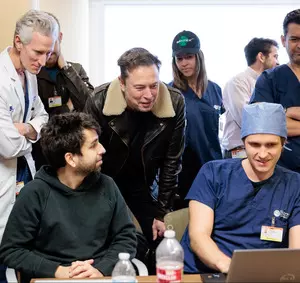US FDA gives nod to Musk's Neuralink to implant brain chip in 2nd person

New Delhi: Tesla CEO Elon Musk-run brain-computer interface company Neuralink has reportedly received a nod from the US Food and Drug Administration (FDA) to implant its brain chip in a second person.
According to a report by the Wall Street Journal(WSJ), the U.S. health authorities have granted approval for Elon Musk's Neuralink to proceed with a second brain chip implant. This decision comes after Neuralink addressed an issue with the first patient, where small wires in the brain shifted from their intended positions.
The fixes include embedding some of the device’s ultrathin wires deeper into the brain, according to a person familiar with the company and a document viewed by The Wall Street Journal. The approval for the second person to have a Neuralink chip came as the first recipient -- Noland Armagh in the US -- detailed his emotional journey.
The latest chip in the second recipient comes with some fixes, like embedding some of the device’s ultrathin wires deeper into the brain, The Wall Street Journal reported on Monday.
Neuralink is planning to implant its device in a second patient in June and anticipates implanting the device in a total of 10 individuals throughout the year. The WSJ reports that over 1,000 quadriplegics have joined the company's patient registry. Additionally, Neuralink is preparing to seek regulatory approval in Canada and Britain within the next few months to start similar trials.
Musk or Neuralink were yet to officially react to the development.
The Neuralink chip can help restore full body control in people suffering from paralysis. The company earlier achieved a successful brain-chip implant with Armagh and began the applications for the second participant for the chip implant.
According to Musk, the company can bridge "severed nerve signals to a second Neuralink in the spine, restoring full body control”.
With the chip in his brain, Arbaugh has enabled "telepathic control of a computer or phone just by thinking". The Neuralink trials aim to assess the initial functionality of the wireless brain-computer interface for enabling people with paralysis to control external devices with their thoughts.


